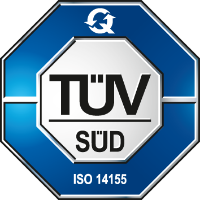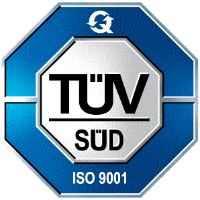Menu
Getting your medical device to market
Upcoming Changes to ISO 14155:2020ISO 14155:2020, the international standard for the clinical investigation of medical devices for human subjects, is undergoing significant updates. These changes are designed to enhance risk management, clarify procedures and ensure the safety and efficacy of clinical trials.
Here’s a summary of the key updates:
Risk Management Updates:
1. Risks related to investigational devices (6.2.1)
2. Risks related to clinical investigations (6.2.2)
Adverse Event (AE) Categorization
Annex F has been updated to improve the categorization of adverse events (AEs). This includes clear criteria for identifying and classifying serious adverse device effects (SADE), anticipated SADEs, and non-device-related AEs. The flowchart in Annex F has been revised to provide more precise guidance on the categorization process.
Estimands Framework
A new Annex K introduces the concept of “estimands” for clinical investigation design. An estimand is a precise description of the treatment effect that reflects the clinical question posed by the investigation’s objective. This framework helps in aligning the statistical analysis with the clinical objectives, considering factors such as treatment conditions, target population, endpoints, intercurrent events and methods for handling missing data.
Informed Consent
Updates to sections 5.8.1 and 5.8.2 emphasize the importance of obtaining written informed consent from subjects or their legally designated representatives before any clinical investigation procedures are applied. The process must be thoroughly documented, and any special circumstances must be clearly described.
Investigator Brochure
The information required in the Investigator Brochure has been expanded, ensuring comprehensive details about the investigational device are provided. This includes all relevant technical, functional, and clinical performance characteristics.
Under the Medical Device Regulation (MDR) 2017/745, the process of clinical evaluation is crucial for demonstrating the safety and performance of medical devices. Qmed’s article likely emphasises the significance of evaluating these aspects and outlines methods to identify and validate safety, performance, and clinical benefits for a particular medical product. Qmed has written an article with the focus on: 1. Importance of Identifying Safety, Performance, and Clinical Benefits. 2. Methods to Identify and Validate Safety, Performance, and Clinical Benefits. 3. How to determining Analytic Methods to Collect Data. Overall, the process of clinical evaluation necessitates a comprehensive approach that involves careful assessment, data collection, analysis, and continuous monitoring to ensure the safety, performance, and clinical benefits of medical devices in compliance with the MDR 2017/745. Hope you enjoy and reach out if you need support to navigate the process!
The development and manufacture of medical devices require stringent design control processes to ensure their safety, effectiveness, and compliance with regulatory standards. This white paper provides an in-depth examination of medical design control processes, with a particular focus on the International Organization for Standardization (ISO) 13485 standard, other relevant standards and the Medical Device Regulation (MDR). The paper discusses key concepts, stages, and activities involved in design control, along with the regulatory requirements imposed by the standards and the MDR. By adhering to these standards, medical device manufacturers can streamline their design processes and enhance patient safety and product quality.
The year 2023 has come with changes to Qmed! Please help me welcome Agnes Friese Skov as newly announced General Manager for Qmed. At Qmed we are at a journey. The focus is on Qmed clients and the team. Supporting and strengthening the competences and culture Agnes will focus on the well-being of our employees, on our core values and on maintaining a good work culture. I will continue using my experience and know-how to support Qmed existing and future coming customers, and help companies make the right strategic choices for their products in development. With the organisational changes we will support the coming years growth. Thanks Helene
Our newest article is a result of an interview by Helene Quie to Bassil Akra, AKRA TEAM’s CEO, on the subject of Clinical Evaluations.
Our newest article is a result of an interview by Helene Quie to Søren Underbjerg, Qmed Consulting’s Team Lead for Clinical Development and Market Access, on “The Use Scientific Surveys as a Method to Collect Medical Device Clinical Evidence”.
There are many challenges to face when bringing a medical device to the market for the first time. In this article, we will present and answer the most common questions we get and provide an overview of some of the activities you will have to perform. Remember to sign up for our course in clinical investigation with Norway Health Tech
In this month’s focus article, we are discussing diversity in clinical investigations and how to use 14155:2020 on good clinical practice to make sure your device is safe and effective for its intended population. I’d like to hear your opinion on diversity and how you overcome the barriers preventing diversity in clinical investigations in your country?
The transition period for the United Kingdom to leave the European Union is coming to an end on 31 December 2020. After the deadline UK will be considered a third country if no…
This article explains how to use the equivalence pathway to demonstrate conformity of a medical device with the general safety and performance requirements based on the MDR, the MEDDEV 2.7/1 revision 4 and the new guideline published by the Medical Device Coordination Group MDCG 2020-5, as well as contractual aspects of equivalence.
In Switzerland, just as elsewhere, ‘Europe’ and immigration are closely connected topics. The right wing political party is very vocal in its campaigning to reduce the numbers o…
Important new MDCG guidelines are released from the European Commission. These are importance guidance documents for all of us working within developing and selling medical devices…
The pandemic COVID-19 has resulted in various restrictions to countries around the globe. It has affected the ability of notified bodies to conduct mandatory on-site audits unde…
Several guidance’s, posts, webinars have been published addressing what evidence collection due to the COVID-19 pandemic, and with this Newsletter we are publishing where to find the different national guidelines and recommendations. Additionally, the MDR Amendment allow us to reconsider our strategies and potential scenarios. In this article…
While we are waiting for the MDR amendment to be discussed and agreed upon by the European Parliament and the Council hopefully before end May through an accelerated co-decision procedure lets try and sum up what it could mean for manufacturers of medical devices (note: As for the In Vitro Diagnostics Regulation (IVDR), which will be applicable from 26 May…
As the impact of COVID-19 intensifies globally, governments and healthcare systems come under extraordinary pressure. And healthcare professionals are holding the front line to save lives…
Manufacturers should ask themselves if they have available the proper clinical data under the MDR to provide sufficient clinical evidence. The first step to answering this question is to identify and analyse the clinical evidence available and create an evidence gap analysis in comparison to the desired claims.
The final draft of the new third edition of the ISO 14155 is being prepared for circulation. This means that at the present stage, only editorial changes are permitted, and therefore this draft version can be used by sponsors designing clinical investigations of medical devices…
The publication of the MDR in May 2017 marked the start of a 3 year period of transition from the MDD and the AIMDD. During the transition period the Regulations will come into force gradually, starting with provisions related to the designation of Notified Bodies and the ability of manufacturers to apply for new certificates under the Regulations…
With the Medical Device Regulation coming fully into force on 26 May 2020, there is a risk that a majority of the medical devices on the European market converting from the Medical Device Directive into the new Regulation will be considered by the Authorities and Notified Bodies to have insufficient clinical evidence to support their continued…
An organisation may fund research without being the Clinical Sponsor. A Clinical Sponsor is the responsible party for a study or investigation and is per definition defines as…
Do you have a solid clinical research background? Do you want to drive clinical trials in a company that ensures reliable and thorough approvals for new medical devices? As our new clinical research associate (CRA), you will embark on an exciting and collaborative career…
Last week the European commission published the new Medical Device Regulation (MDR) and the question on how this will impact the Medical Device industry within Europe have been asked by many. The purpose of this new regulation is to ensure…
FDA’s Compliance Program Manual provides Inspectors with instructions for evaluating industry compliance with regulations and Good Clinical Practice (GCP). Among other activities, the FDA Bioresearch Monitoring (BIMO) Program involves site visits to clinical investigators, sponsors, monitors, contract research organizations, nonclinical (animal) laboratories, and…
FDA’s Compliance Program Manual provides Inspectors with instructions for evaluating industry compliance with regulations and Good Clinical Practice (GCP). Among other activities, the FDA Bioresearch Monitoring (BIMO) Program involves site visits to clinical investigators, sponsors, monitors, contract research organizations…
A new version of the European Guideline MEDDEV 2.7/1 rev 4 was issued in June 2016 affecting all companies that market medical devices in Europe. This guidance promotes a common approach to clinical evaluation for medical devices regulated by the directives 93/42/EEC…
Koebmagergade 53, 1.
DK-1150 Copenhagen K.
Denmark
+45 56 64 10 10
info@qmed-consulting.com
Proud sponsors of
Red Cross and Mothers Aid.


Qmed Consulting is an ISO 9001:2015
& 14155:2020 certified company.

